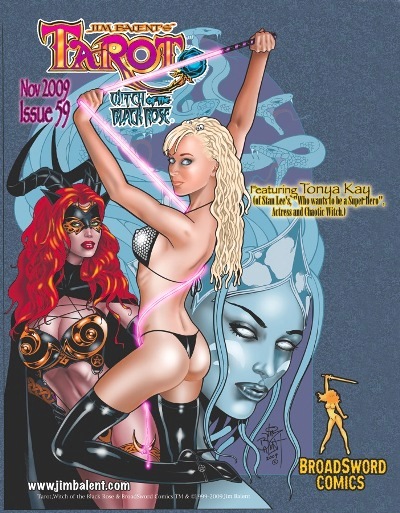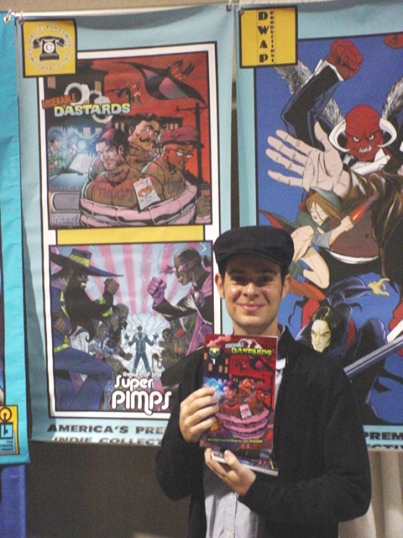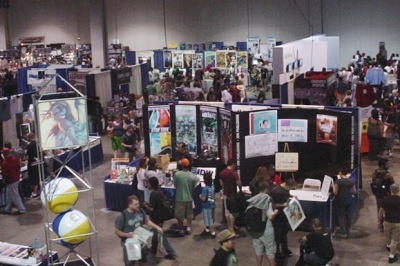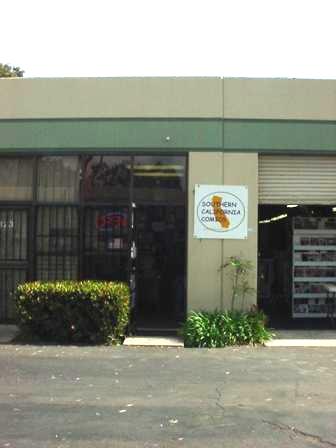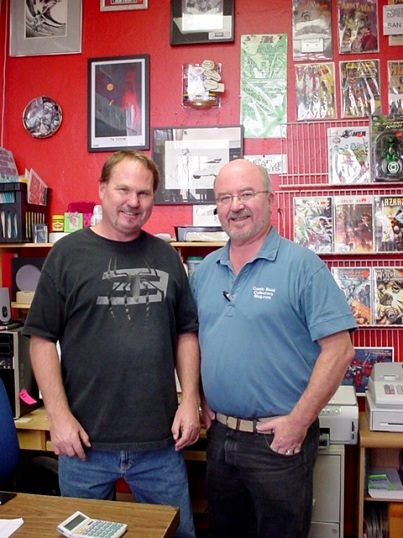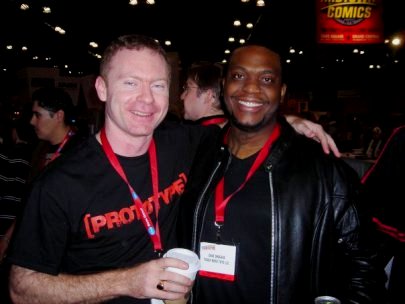Last week I attended the Faction comic book signing at Southern California Comics in San Diego...
Southern California Comics, a.k.a. SoCal Comics, is owned by Jamie Newbold and is one of the major places in Metro San Diego area that I stop in at for comic book supplies and new comics for myself.
When I stopped there last week for the comic book signing, (click here for that blog), Jamie and I went over what's been going on in San Diego sales wise for comics. The following is from Jamie's own words:
"It’s late October and San Diego is experiencing yet another dry spell. There is also a continuing “dry spell” in the comic book sales arena. I’m speaking about two years of recessive sales nationwide finally catching up to “new comic’s” sales (more later). Capitalism is still reeling under the weight of mortgage defaults, stalled loans, unemployment, and bailout fallout. But, one collectible continues to hold its own in battle--the old comic book. Capitalism is capital-schism in my world! Our 2009 economic reality split from much of the sadness in other parts of the business world.
The average Gold, Silver, and Bronze comics remained popular purchases. They consistently sold well worldwide at the same basic pricing points as they did in 2006. While other markets either feel the pinch of current economic woes or are returning to normal, comic book back issues flourish as though the state of America’s retail business was bi-polar! Beginning with the tragedy of 9-11our business has survived potential sales droughts as the economy reshuffles itself. After the recession began this time around I expected to see horrible sales figures, books go unwanted, and money not made. Instead, as with 9-11’s impact on the US economy, our current economic insecurities have reduced back issue sales very little.
Our sales are not huge, not even big but they are consistent. Back issue sales from ages past to the present rarely slowed down throughout the year. Prices achieved reflect a market savvier from sacrifices made by businesses to stay alive and attract customers.
Sure, some people have stopped buying new comics. We’ve seen it and continue to witness the slow departure of customers that we depended on for new comic’s sales. We’ve seen stores apply ridiculous discounts to retain customers. The selling of new comics to make a living is truly an art.
However, older comics continue to keep moving. Why? Older comics are just so darn appealing and the prices are right. Many customers choose comic books that are priced to their liking because old comics often stay the same price. There usually is no fluctuation with these books, unlike purchasing food or gas. At the very least, you can negotiate a comic book sale. Try negotiating your gas price at Chevron. Or, the cost of milk at a 7-11!
Selective discounting at the retail store level helps move books that would sit at full price for years. We found that round-filing lower graded pre-1980s books into $5 and $10 price tags have better turn out. By ignoring established prices and buying and selling at cheaper rates, this strategy works for everyone (except those determined to get more). There are plenty of buyers at our end of the state making it worth our while to carry them.
Customer’s of eBay set the standards years ago and the recession has reinforced those pricing standards. There is no need to try and sell a VG copy of Strange Tales 163 for $12.00. Better to slap $5 on it and the buyer will eventually arrive to collect it. Wholesalers and collection owners offering these kinds of books to us see the same reality. We are getting opportunities to buy older collections with less resistance to lower offers. Those same eBay standards are seen by everyone.
STORE SALES: Comic book buyers love a store that sells new and old comics. At our store, the “hands-on” ability to hold comics before making a purchase breeds trust and loyalty. I cannot emphasize enough how easy it is to sell a comic book if the buyer can see it in three dimensions first. The tactile sale and the fact that there are not many stores left with exotic comics in quantities give us a huge advantage over eBay.
The past two year’s of economic headaches created our dependency on greater numbers of out-of-town buyers for older back issues. San Diego’s transitory-resident nature drove out a few customers through the year due to both financial and career related reasons. Unfortunately, these were the same people that frequented our back issues on regular basis. Although the drop was relatively minor, we were able to bounce back with the amount of tourists visiting the area. Many of these visitors came in to the store inspired by on-line reviews, Overstreet, prior contacts, or internet sales activity. Often, they would share stories of other dealers and collectors with me. These discussions provided different perspectives of pricing/collecting and also allowed for informative feedback. Plus, you get a real good feel of the nationwide market scheme through the visitors.
NEW COMICS: 2008 brought about a 20-30% loss in business. Retail numbers steadily began a return right after Christmas. It was as though everybody took a collective sigh of relief and returned to old habits. 2009 proved to be different in that summertime brought positive growth and spending with some help from Comic Con attendees. However, college tuition hikes, labor shortages, and recurrent fuel increases spelled trouble just on the horizon. California’s sales tax increase also hampered sales of new comics. These unfortunate events produced the next round of disappearances that affected the sale of new comics.
I ended up in a new round of cutting quantities of pre-ordered monthly comics. Diamond Comic Distributor’s F.O.C. (Final Order Cutoff) feature became a steady function every Wednesday (adjusting ordering numbers--downward). Now, in the fall of 2009, we are still regularly reducing the quantity of title orders. This has slowed down a market we enjoyed for the first 8 months.
Marvel’s general cover price increase to $3.99 across a majority of their titles did not impact us immediately. We initially saw increased daily sales figures as our customers segued into new cover prices. Slowly, customer complaints about the extra dollar per book, the constant one-shots, tie-ins, and limited stories against their tightened budgets abounded. Two common complaints we have heard centered on substandard story arcs and late titles. Even fan favorites, like “Kick-Ass” and “Captain America Reborn“, got sales-slammed.
Similarly, DC presented $3.99 issues. If DC had retained $2.99 prices universally, I could have countered Marvel sales decline with DC titles as affordable reading alternatives for Marvel fans.
Cover prices, delays, and a bad economy forced some of my die-hard, big pull customers to consider which titles they absolutely must have. Whether the page count was 32 or 48, the $3.99 cover price continued to hurt business as I stacked unsold copies in hopes that buyers would still pick them up. To alleviate money problems, many of our regular pull-list customers deleted Marvel titles from the subscriptions all together.
I must add that the current theme of DC and Marvel’s constant story events seem to be losing gas each time they come out. Dark Reign and Blackest Night story lines started off strong. Then, too many comics sharing the same storylines (with convoluted continuities -- Spider-Man!) and no end in sight created buyer backlash in hard times. These problems stopped buyers from purchasing them, even if the story line was good. It was done to save money at a time where comics’ creators need to compensate for this phenomenon.
On a brighter note, trade paperback book sales have continued to rise in quantity. My customers have a combative nature when it comes to overpaying for comics. They see that some small publishers cover price their books at $9.00 across the board. My customers pursue those comics in very small quantities as though they were luxuries. They require Marvel and DC to toe the line at lower prices to remain active readers. Their frequency of TPB purchases against buying single issues indicates:
1) Customer’s reluctance to experience $3.99 cover prices
2) Their patience to await a full stories’ release in book form months after the comics were released
3) A way to send a message to the publishers that pricing should be a serious consideration."
Jamie went on to talk about individual comics publishers and their titles... I have titled this blog post as 'Part I'. If YOU would like to read more of Jamie's thoughts on comics retailing in the San Diego Metro Area... Please email me, message me, or write on my Facebook Wall that YOU would like to read more and I'll move 'Part II' up quicker in the timeline for posting here! Thanks again to Jamie Newbold for sharing the above with me and giving me permission to post it in my Blog!
For those of you that are looking at visiting the San Diego area soon, be sure to visit Jamie's SoCal Comics store. There is much more to comics in San Diego than just the once a year Comic Con International: San Diego (CCI / SDCC)!
Here's the direct link to Jamie's store: http://www.socalcomics.com/!


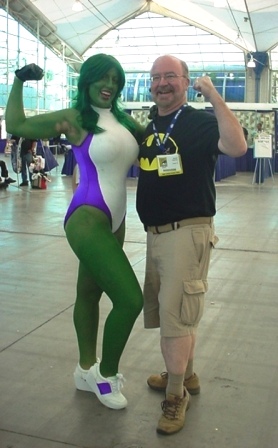

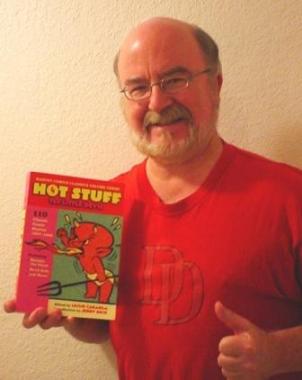




 HAPPY BIRTHDAY to You Melody on Sunday!
HAPPY BIRTHDAY to You Melody on Sunday!

 COMIC CON FEATURETTE: This Blog's 'Main Feature' today was about Melody Mooney, who is an actress as well as a pop culture personality.
COMIC CON FEATURETTE: This Blog's 'Main Feature' today was about Melody Mooney, who is an actress as well as a pop culture personality.

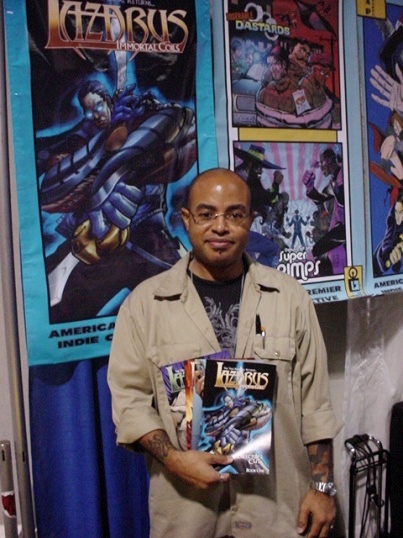
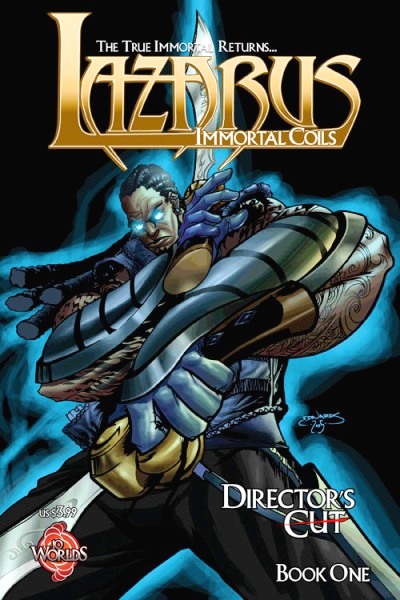
 COMIC CON FEATURETTE: This Blog's 'Main Feature' today was about the biblical character of Lazarus, updated for the present.
COMIC CON FEATURETTE: This Blog's 'Main Feature' today was about the biblical character of Lazarus, updated for the present.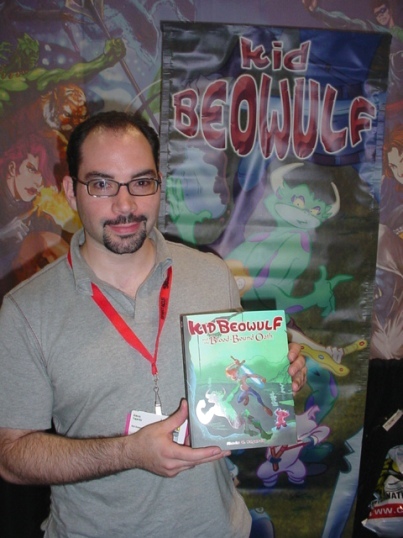
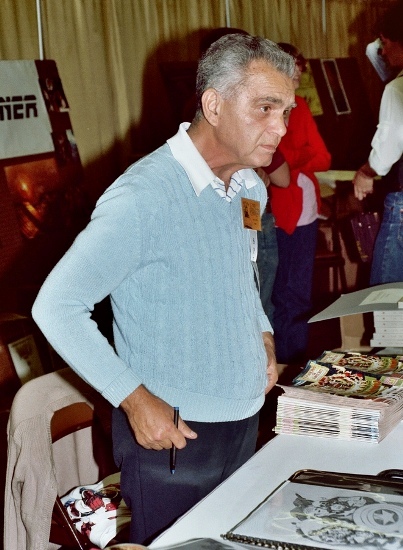
 COMIC BOOK SIGNING FEATURETTE:
COMIC BOOK SIGNING FEATURETTE: 